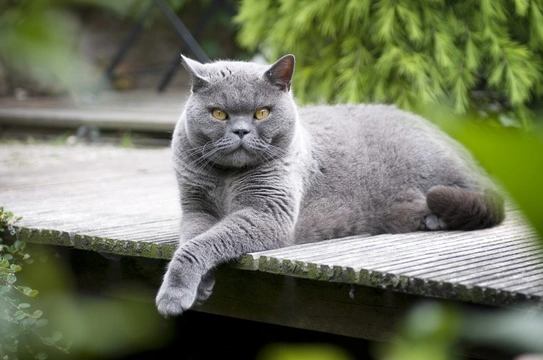
Dealing With Felv (feline Leukaemia Virus) In Cats
Feline leukemia virus or FeLV is a disorder that seriously and negatively impacts a cat's immune system. The disease can also cause specific forms of cancer and is responsible for many cat deaths throughout the world. It is a viral infection that can affect any breed of cat at any stage of their lives although studies have shown that male cats are at higher risk of contracting the disease than their female counterparts. Research has also established that although a cat can contract FeLV at any stage of their lives, they seem to be more at risk when they are anything from one to six years of age.
Signs to Watch Out For
There are three types of the disease which are as follows:
- FeLV-A: This form seriously weakens a cat's immune system
- FeLV-B: This form of the disease causes tumours as well as other abnormal growth in a high percentage of cats
- FeLV-C: This form is the rarer of the three types of the disease and it causes severe anaemia in cats
A cat can suffer from all three types or they may contract just one or two of them. The most common symptoms to watch out for that a cat may have contracted the disease could include the following:
- Anaemia
- Lethargy
- Weight loss
- Abscesses
- Enlarged lymph nodes
- Constant diarrhoea
- Poor skin and coat condition
- Infections that flare up on the outer ear
- Fever
- Unsteady, uncoordinated movements
- Nose, cornea and tissues around the eye become inflamed
- Imflamed gums and tissue in the mouth
- Lymphoma - most common FeLV-B
- Fibrosarcoma - this is a form of cancer
The Causes
Cats contract the disease if they come into contact with other cats that already suffer from a form of FeLV. The most usual ways cats transmit the disease to each other includes the following:
- Bites
- Grooming
- Shared water and feed bowls
- Shared litter trays
A nursing mother can also transmit the disease to her kittens through her milk and it's worth noting that her offspring are a lot more susceptible to contracting FeLV if she is infected.
Diagnosing the Condition
A vet would want to rule out any other health disorders when they first examine a cat suspected of suffering from one, two or all three of the FeLV viruses. This includes ruling out the following reasons:
- Bacterial infection
- Parasitic infection
- Viral infection
- Fungal infection
- Non-viral cancers
A vet would also recommend carrying out specific tests which would help confirm a diagnosis and this includes the following:
- A complete blood count - this would determine if a cat is suffering from anaemia or some other blood disorder
- A urinalysis
- Bone marrow biopsy
- Bone marrow aspiration
Treatment Options
A vet would typically prescribe a specific type of medication that would treat the symptoms of FeLV and if successful would recommend that a cat be vaccinated yearly. Should the symptoms be very severe, a cat might need to be hospitalised more especially if a nasty secondary infection has flared up or if the levels of their red blood cells have fallen dangerously low. A vet would also want to hospitalise a cat if they are seriously underweight so they can closely monitor their condition and if necessary, give them blood transfusions and feed them intravenously.
Cats suffering from FeLV need a lot of supportive care which might have to include them being given fluids. Their food often needs to be supplemented with certain minerals and vitamins to remedy any imbalances. Cats that suffer long-term muscle loss could also need to be given a special diet and their teeth need to be checked regularly for any infection and if necessary have any teeth removed that may cause a problem.
Living with a Cat with FeLV
Once a cat has been diagnosed with FeLV, monitoring their condition even after they have been treated is essential and follow-up treatments may be necessary. A very high percentage of cats carry the virus in the blood and are referred to as FeLV viremic cats. Sadly, many cats develop other related diseases when they suffer from the disease and only live between two to three years after having contracted FeLV.
Prevention
The only real way of preventing a cat from contracting FeLV is to keep them as indoor pets and to ensure they are fed a well-balanced diet. Cats also need to be regularly checked for secondary infections which includes bacterial, viral and parasitic infections. Cats should also be vaccinated, but it's important for them to be tested beforehand because there is a good chance they may already be infected in which case, vaccinations may be too late.



